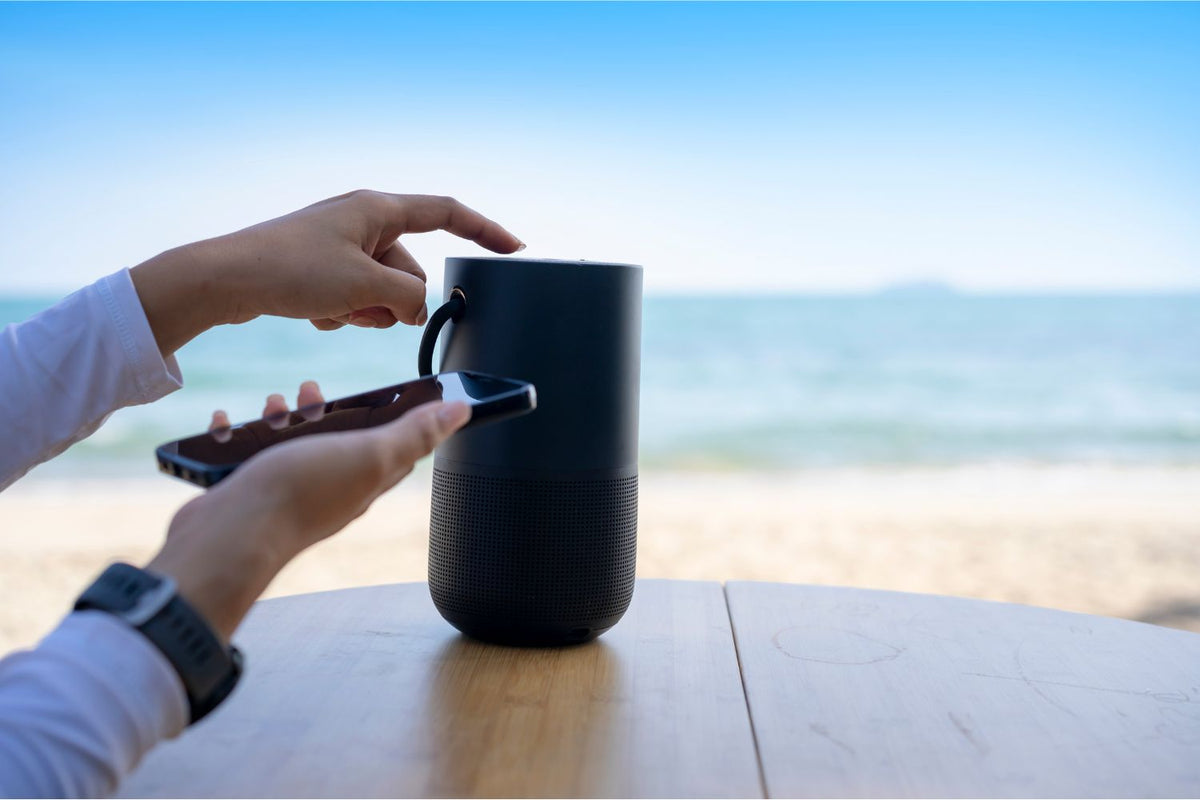I appreciate you sharing this valuable information. In my opinion, it’s fantastic.
https://gjepc.org/solitaire/

Table of content
Whether it's a Bluetooth speaker or Bluetooth headphones, in today's world of digital music and wireless audio devices, the issue of "Bluetooth speaker latency" is frequently encountered. The delay in Bluetooth speakers not only affects the auditory experience but can also lead to audio-visual sync issues, especially when editing videos or playing games, which can be quite frustrating. If you encounter a delay with your Bluetooth speaker, does that mean you have to return it? Not necessarily! This article will share five immediate ways to improve Bluetooth speaker delay!
Why are Bluetooth speakers and headphones more prone to latency issues? Unlike wired headphones, the operation of Bluetooth devices is more complex, making them more susceptible to latency. For example, when a smartphone connects to a Bluetooth device:
After the smartphone generates a digital audio signal, it is sent directly through a DAC (Digital-to-Analog Converter) to the headphones, where the DAC receives the digital audio signal and converts it into an amplified analog signal that can be heard by the human ear. This entire conversion process is quick, usually taking less than 0.007 seconds.
However, the conversion process for Bluetooth devices is more complicated:
After the smartphone outputs the digital signal, it is sent to the Bluetooth speaker's transmitter for compression and encoding. After being transmitted, the signal is decompressed at the Bluetooth receiver and output as digital audio to the DAC of the Bluetooth headphones, converting it into an analog signal for the human ear. During this conversion process, latency can occur due to power supply issues, Wi-Fi signal interference, or interference from other Bluetooth devices.
For those who edit videos or play games, the problem of music and visuals being out of sync can significantly disrupt user experience; thus, delay issues with Bluetooth speakers and headphones can be particularly troublesome for certain groups.
Insufficient power supply issues are particularly common when using laptops as signal sources. Since laptops generally have weaker power supply capabilities, connecting multiple devices via USB ports may lead to insufficient power supply from the laptop, causing unstable signal transmission and potentially resulting in latency in Bluetooth speakers or headphones.
Wi-Fi interference often occurs during outdoor activities or in indoor environments with many audio devices. Modern Wi-Fi operates on two frequency bands: 2.4G and 5G. The 2.4G band overlaps with the frequency used by Bluetooth. Therefore, if the Wi-Fi signal is strong or multiple Wi-Fi devices are present, it may also cause latency in Bluetooth speakers.
Although current Bluetooth transmission technology has a range of about 10 meters, excessive obstructions in your environment can still cause sound latency even within that distance.
While most people may not frequently encounter this issue, audio enthusiasts who have tested many speakers and headphones might find their phone's Bluetooth connection list overloaded with stored devices. This can lead to interference and consume memory resources; it is advisable to delete unused connection devices.
Excessive devices may interfere with each other and cause "traffic jams" in Bluetooth bandwidth.
Check for insufficient power supply: Ensure that your laptop isn't connected to too many other devices that could cause power supply issues.
If Wi-Fi signals are confirmed to be interfering, consider switching your Wi-Fi router to the 5G band.
As Bluetooth technology advances, newer versions (like Bluetooth 5.0 and above) typically offer faster data transmission speeds and lower latency. Although Bluetooth supports backward compatibility, older devices like Bluetooth 3.0 can still impact transmission speeds.
As Bluetooth technology advances, newer versions (like Bluetooth 5.0 and above) typically offer faster data transmission speeds and lower latency. Although Bluetooth supports backwarda compatibility, older devices like Bluetooth 3.0 can still impact transmission speeds.
Many problems can be resolved simply by resetting your device, which allows small bugs within programs to clear automatically. You can also refer to a Bluetooth latency test APP to test whether there is indeed a delay issue.
If your living environment or speaker placement has excessive interference signals and adjusting frequency bands doesn't resolve it, consider using Wi-Fi speakers; this situation is generally rare.
The latest Bluetooth technology has reduced latency significantly; for users engaged in music gaming, selecting devices with aptX Low Latency encoding is recommended; further details can be found on Qualcomm's official website.
In conclusion, while Bluetooth speaker latency can be a frustrating issue, especially for those engaged in activities requiring precise audio-visual synchronization, there are effective strategies to mitigate this problem. By understanding the underlying causes of latency—such as power supply limitations, Wi-Fi interference, and excessive distance from devices—users can implement practical solutions like optimizing device settings, updating Bluetooth versions, and choosing low-latency codecs. Additionally, simple actions such as resetting devices or managing the number of connected devices can significantly enhance audio performance. With these tips in mind, users can enjoy a more seamless and enjoyable listening experience, allowing them to fully appreciate their favorite music, movies, or games without the annoyance of audio latency.
Comments
I appreciate you sharing this valuable information. In my opinion, it’s fantastic.
https://gjepc.org/solitaire/
Thank you for sharing this blog. I think it’s wonderful!
https://www.live101.in/
